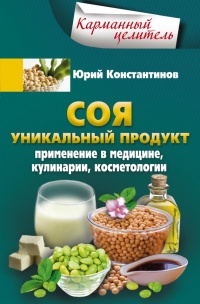Читать книгу "Эффект теломер. Революционный подход к более молодой, здоровой и долгой жизни - Элисса Эпель"
Шрифт:
Интервал:
Закладка:
16. Lim, D., and D. DeSteno, “Suffering and Compassion: The Links Among Adverse Life Experiences, Empathy, Compassion, and Prosocial Behavior,” Emotion 16, no. 2 (March 2016): 175–182, doi:10.1037/emo0000144.
17. Asok, A., et al., “Infant-Caregiver Experiences Alter Telomere Length in the Brain,” PLOS ONE 9, no. 7 (2014): e101437, doi:10.1371/journal.pone.0101437.
18. McEwen, B. S., C. N. Nasca, and J. D. Gray, “Stress Effects on Neuronal Structure: Hippocampus, Amygdala, and Prefrontal Cortex,” Neuropsychopharmacology: Official Publication of the American College of Neuropsychopharmacology 41, no. 1 (January 2016): –3–23, doi:10.1038/npp.2015.171. Arnsten, A. F. T., “Stress Signalling Pathways That Impair Prefrontal Cortex Structure and Function,” Nature Reviews. Neuroscience 10, no. 6 (June 2009): 410–422, doi:10.1038/nrn2648.
19. Suomi, S., “Attachment in Rhesus Monkeys,” in Handbook of Attachment: Theory, Research, and Clinical Applications, ed. J. Cassidy and P. R. Shaver, 3rd ed. (New York: Guilford Press, 2016).
20. Schneper, L., Brooks-Gunn Jeanne, Notterman, Daniel, and Suomi, Stephen. “Early Life Experiences and Telomere Length in Adult Rhesus Monkeys: An Exploratory Study.” Psychosomatic Medicine in press (n.d.).
21. Gunnar, M. R., et al., “Parental Buffering of Fear and Stress Neurobiology: Reviewing Parallels Across Rodent, Monkey, and Human Models,” Social Neuroscience 10, no. 5 (2015): 474–478, doi:10.1080/17470919. 2015.1070198.
22. Hostinar, C. E., R. M. Sullivan, and M. R. Gunnar, “Psychobiological Mechanisms Underlying the Social Buffering of the Hypothalamic-Pituitary-Adrenocortical Axis: A Review of Animal Models and Human Studies Across Development,” Psychological Bulletin 140, no. 1 (January 2014): 256–282, doi:10.1037/a0032671.
23. Doom, J. R., C. E. Hostinar, A. A. VanZomeren-Dohm, and M. R. Gunnar, “The Roles of Puberty and Age in Explaining the Diminished Effectiveness of Parental Buffering of HPA Reactivity and Recovery in Adolescence,” Psychoneuroendocrinology 59 (September 2015): 102–111, doi:10.1016/j.psyneuen.2015.04.024.
24. Seery, M. D., et al., “An Upside to Adversity?: Moderate Cumulative Lifetime Adversity Is Associated with Resilient Responses in the Face of Controlled Stressors,” Psychological Science 24, no. 7 (July 1, 2013): 1181–1189, doi:10.1177/0956797612469210.
25. Asok, A., et al., “Parental Responsiveness Moderates the Association Between Early-Life Stress and Reduced Telomere Length,” Development and Psychopathology 25, no. 3 (August 2013): 577–585, doi:10.1017/ S0954579413000011.
26. Bernard, K., C. E. Hostinar, and M. Dozier, “Intervention Effects on Diurnal Cortisol Rhythms of Child Protective Services – Referred Infants in Early Childhood: Preschool Follow – Up Results of a Randomized Clinical Trial,” JAMA Pediatrics 169, no. 2 (February 2015): 112–119, doi:10.1001/jamapediatrics.2014.2369.
27. Kroenke, C. H., et al., “Autonomic and Adrenocortical Reactivity and Buccal Cell Telomere Length in Kindergarten Children,” Psychosomatic Medicine 73, no. 7 (September 2011): 533–540, doi:10.1097/PSY.0b013e318229acfc.
28. Wojcicki, J. M., et al., “Telomere Length Is Associated with Oppositional Defiant Behavior and Maternal Clinical Depression in Latino Preschool Children,” Translational Psychiatry 5 (June 2015): e581, doi:10.1038/ tp.2015.71; and Costa, D. S., et al., “Telomere Length Is Highly Inherited and Associated with Hyperactivity – Impulsivity in Children with Attention Deficit/Hyperactivity Disorder,” Frontiers in Molecular Neuroscience 8 (July 2015): 28, doi:10.3389/fnmol.2015.00028.
29. Kroenke et al., “Autonomic and Adrenocortical Reactivity and Buccal Cell Telomere Length in Kindergarten Children.” (See #27 above.)
30. Boyce, W. T., and B. J. Ellis, “Biological Sensitivity to Context: I. An -Evolutionary – Developmental Theory of the Origins and Functions of Stress Reactivity.” Development and Psychopathology 17, no. 2 (Spring 2005): 271–301.
31. Van Ijzendoorn, M. H., and M. J. Bakermans-Kranenburg, “Genetic Differential Susceptibility on Trial: Meta-analytic Support from Randomized Controlled Experiments,” Development and Psychopathology 27, no. 1 (February 2015): 151–162, doi:10.1017/S0954579414001369.
32. Colter, M., et al., “Social Disadvantage, Genetic Sensitivity, and Children’s Telomere Length,” Proceedings of the National Academy of Sciences of the United States of America 111, no. 16 (April 22, 2014): 5944–5949, doi:10.1073/pnas.1404293111.
33. Brody, G. H., T. Yu, S. R. H. Beach, and R. A. Philibert, “Prevention Effects Ameliorate the Prospective Association Between Nonsupportive Parenting and Diminished Telomere Length,” Prevention Science: The Official Journal of the Society for Prevention Research 16, no. 2 (February 2015): 171–180, doi:10.1007/s11121–014–0474–2; Beach, S. R. H., et al., “Nonsupportive Parenting Affects Telomere Length in Young Adulthood Among African Americans: Mediation Through Substance Use,” Journal of Family Psychology: JFP: Journal of the Division of Family Psychology of the American Psychological Association (Division 43) 28, no. 6 (December 2014): 967–972, doi:10.1037/fam0000039; and Brody, G. H., et al., “The Adults in the Making Program: Long-Term Protective Stabilizing Effects on Alcohol Use and Substance Use Problems for Rural African American Emerging Adults,” Journal of Consulting and Clinical Psychology 80, no. 1 (February 2012): 17–28. doi:10.1037/a0026592.
34. Brody et al., “Prevention Effects Ameliorate the Prospective Association Between Nonsupportive Parenting and Diminished Telomere Length”; and Beach et al., “Nonsupportive Parenting Affects Telomere Length in Young Adulthood among African Americans: Mediation through Substance Use.” (See #33 above.)
35. Spielberg, J. M., T. M. Olino, E. E. Forbes, and R. E. Dahl, “Exciting Fear in Adolescence: Does Pubertal Development Alter Threat Processing?” Developmental Cognitive Neuroscience 8 (April 2014): –86–95, doi:10.1016/j.dcn.2014.01.004; and Peper, J. S., and R. E. Dahl, “Surging Hormones: Brain-Behavior Interactions During Puberty,” Current Directions in Psychological Science 22, no. 2 (April 2013): 134–139, doi:10.1177/0963721412473755.
36. Turkle, S., Reclaiming Conversation: The Power of Talk in a Digital Age (New York: Penguin Press, 2015).
37. Siegel, D., and T. P. Bryson, The Whole-Brain Child: 12 Revolutionary Strategies to Nurture Your Child’s Developing Mind (New York: Delacorte Press, 2011).
38. Robles, T. F., et al., “Emotions and Family Interactions in Childhood: Associations with Leukocyte Telomere Length Emotions, Family Interactions, and Telomere Length,” Psychoneuroendocrinology 63 (January 2016): 343–350, doi:10.1016/j.psyneuen.2015.10.018.
1. Pickett, K. E., and R. G. Wilkinson, “Inequality: An Underacknowledged Source of Mental Illness and Distress,” British Journal of Psychiatry: The Journal of Mental Science 197, no. 6 (December 2010): –426–428, doi:10.1192/bjp.bp.109.072066.
Внимание!
Сайт сохраняет куки вашего браузера. Вы сможете в любой момент сделать закладку и продолжить прочтение книги «Эффект теломер. Революционный подход к более молодой, здоровой и долгой жизни - Элисса Эпель», после закрытия браузера.




